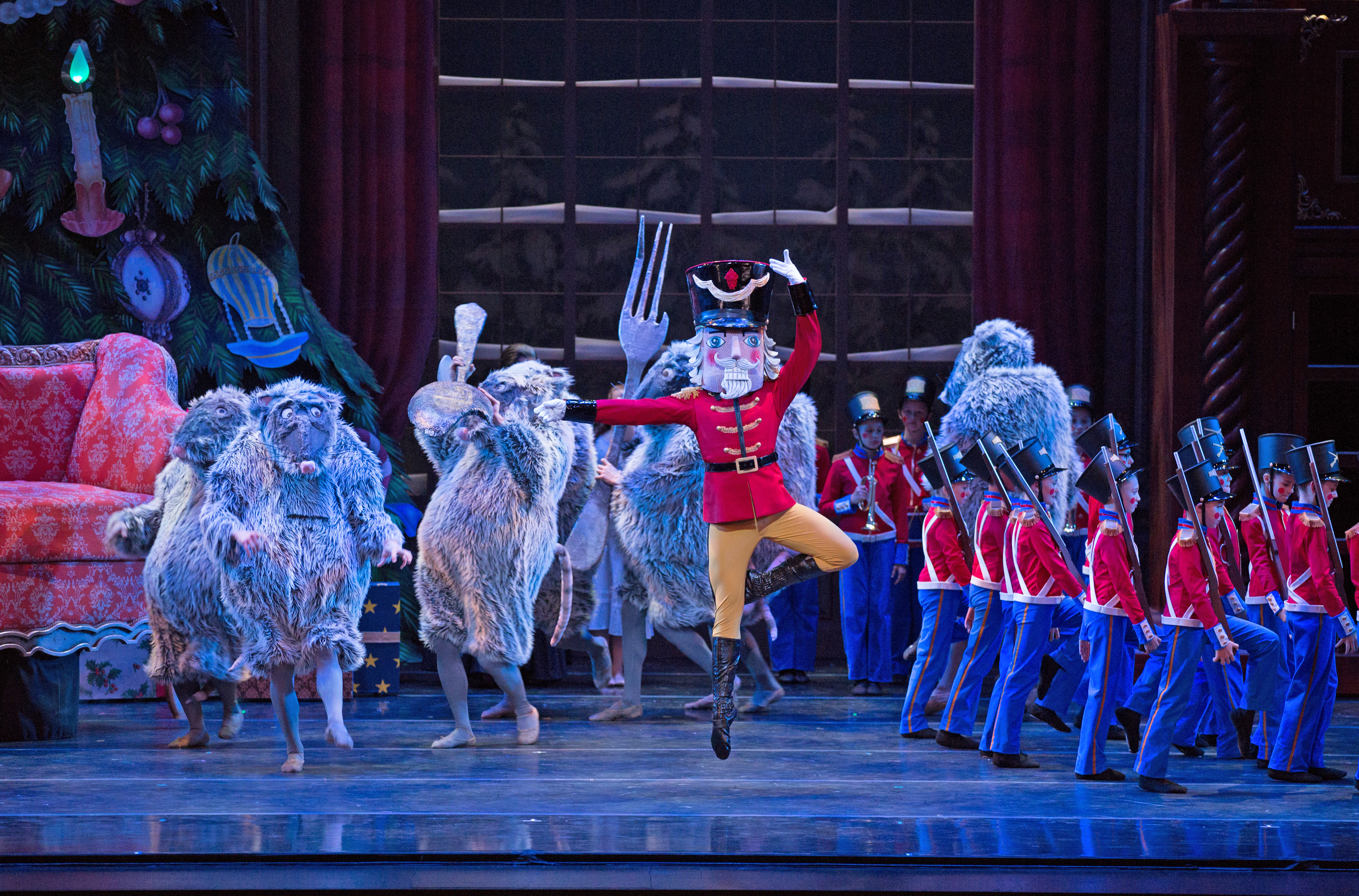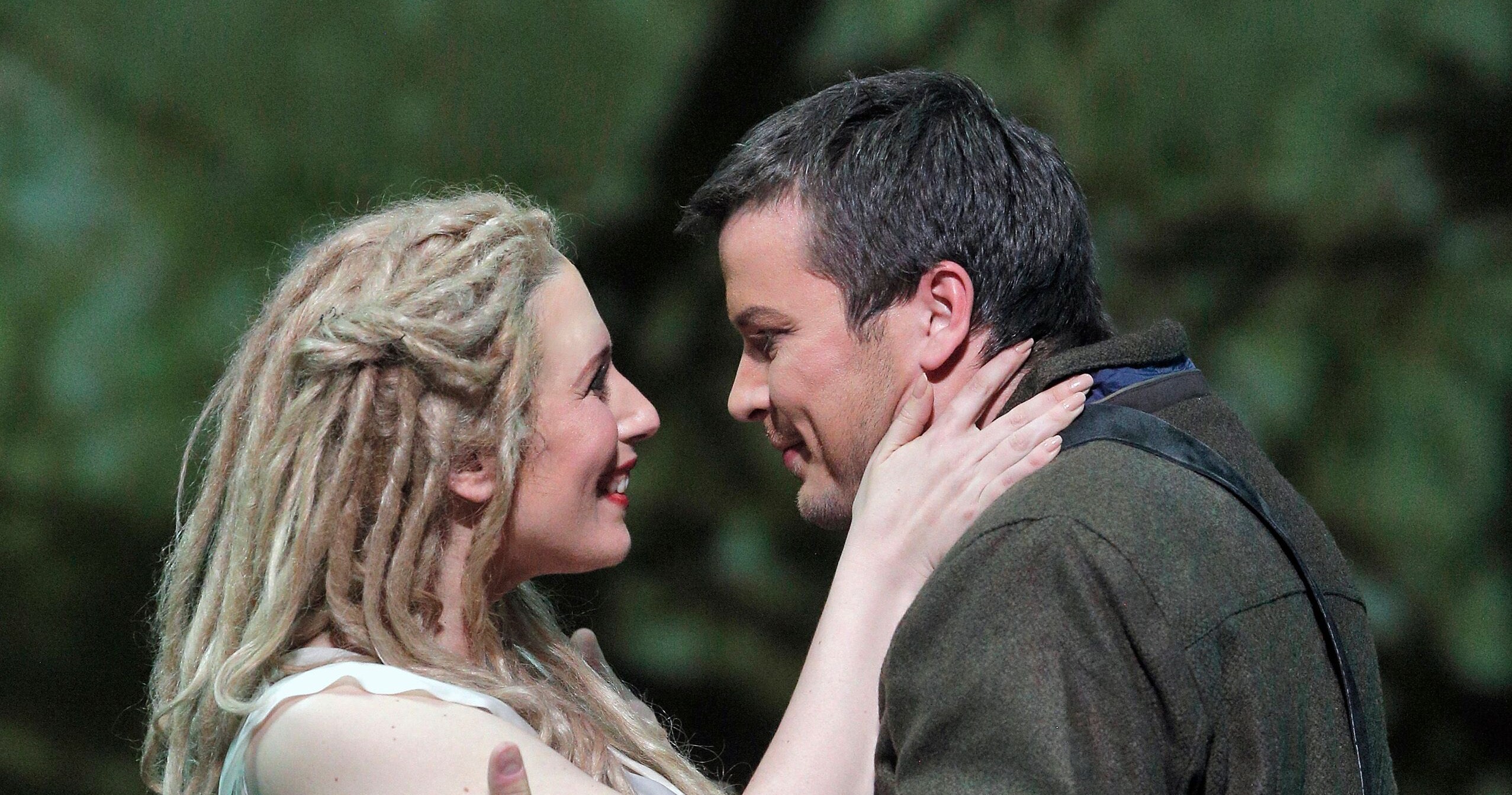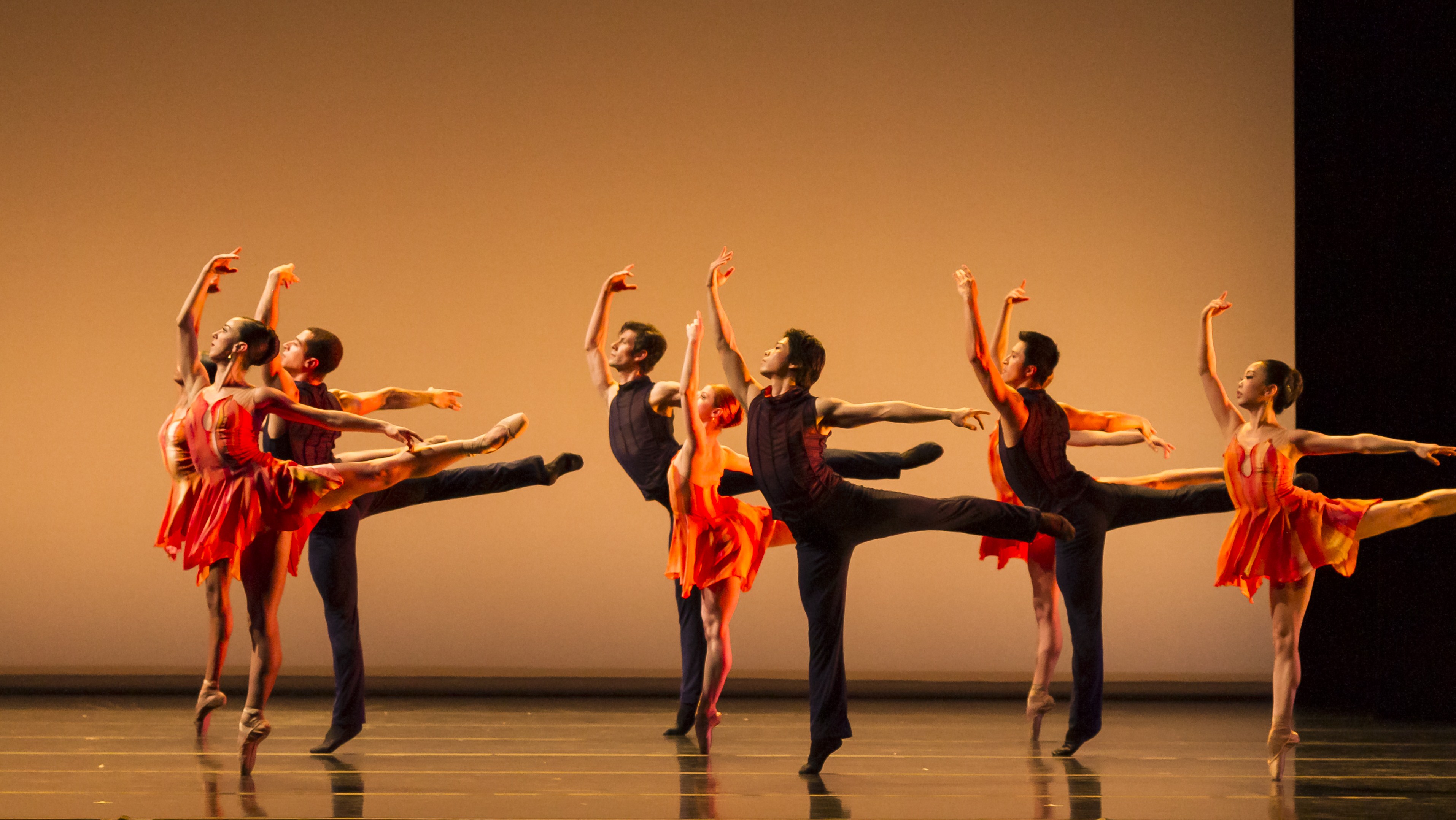IN REVIEW: Actors Theatre scores big with haunting Pinter classics
If you like everything spelled out for you in black and white, Harold Pinter is not your playwright. The late British author deals in alienation, love, power, menace, marital stress, sexual longing, and the sort of quotidian absurdity that lurks around the edges of bourgeois life. But such a description hardly embraces the entirety of Pinter’s genius, for beneath the purported comedic surface of his plays lies a profound sense of mystery – a dull uneasiness about some unknown force that runs through his oeuvre like an undertow. During August and September the Kansas City Actors Theatre is presenting a rare treat for these parts: not one but four of Pinter’s plays, including his celebrated early work The Birthday Party, in absolutely top-drawer — and delightfully funny – performances that will keep me pondering for months to come. The performances rotate between The Birthday Party and an evening of three one-act plays The Collection, The Lover and Night, at Union Station’s intimate H&R Block City Stage.
Part of the frustration of watching the 1958 The Birthday Party is that the characters and dramatic arc are etched with such dazzling clarity that it all feels somehow familiar, yet by the end of the play you feel you have no idea what just happened. Directed with savvy detail by Bruce Roach, the production of this early classic – which was reviled by critics half a century ago but is now hailed as a milestone – reveals the extent to which an artwork can strike us deeply despite a lack of anything resembling a satisfying conclusion. Though I saw it in previews, the production looked like a finished product on August 20th, with powerful performances by six of our city’s most sophisticated actors, convincing scenic designs by Gary Mosby and deliberately askew, metallic keyboard music by Greg Mackender.
At the center of the action is Stanley (T.J. Chasteen), a disheveled, burned-out concert pianist (or so we are led to believe) with a mysterious past. He is the only tenant in a run-down boarding house on the British seashore, owned and operated by the taciturn Petey (Robert Gibby Brand) and his cloying wife Meg (Melinda McCrary). Petey is the bored ticket-taker on the beach, while Meg tries to bring order to what is, ultimately, a chaotic environment. Meg alludes early on to wistful regret for not having had children, and she dotes on the slovenly Stanley as if he were her son – much to his chagrin. Into this fragile stability comes a disruptive force, in the form of two mysterious men in dark suits who purport to be a part of “The Organization” – with the suggestion that Stanley has some past with them. Goldberg (Mark Robbins) is the boss: self-sufficient, full of himself, true to The Organization. McCann (Brian Paulette) is his thuggish assistant, a neat freak with a mean streak (possibly a defrocked priest) and an obsession with “compliance.” His simmering emotional turmoil is expressed through, among other things, a maddening habit of tearing newspapers into strips of paper, for no apparent reason.
The action comes to a climax in the searing Act 2, in which the raucous birthday party of the title (it is for Stanley, even though he insists it is not his birthday) turns drunkenly tumultuous and, ultimately, violent. Stanley cannot stand the pressure of McCann and Goldberg’s continued interrogations and by the end of the party he has suffered an emotional breakdown – which we later learn reduces him to speaking in mono-syllabic babble. Whatever The Organization’s intentions, they have won Stanley back. It is this uneasy sense of menace that makes this play still seem contemporary – for we are more familiar than ever with a society in which anyone can be arrested without official charges being lodged and kept for an undefined length of time. But just who are these men in dark suits? What is The Organization? Is it some religious order, or a secret government agency seeking to manipulate minds? We never know, but the final scene of the play (which I will not spoil) is profoundly disturbing.
The performances are as good as anything I’ve seen on a stage anywhere. Paulette is scarily convincing as the unrelenting agent, Brand makes you feel the deep sense of boredom of a resigned husband, and McCrary conveys a broiling sense of dissatisfaction. Chasteen looks and feels like a has-been, and Robbins helps us experience his own breakdown. Kelly Rebecca Gibson exudes sexiness as glam girl Lulu, who spices up the party before finding herself in Goldberg’s brutal clutches. But at the end of the play we feel trapped, as vulnerable as Stanley to an outside world filled with strange, unknown forces.
Compared to The Birthday Party, the three one-act plays, which I attended on August 27th, seemed almost light-hearted. But again they traded in dark, uncomfortable undercurrents of everyday life, and they were treated to marvelously witty performances by the same ensemble as above plus Carla Noack. The Collection is a dual drama between two couples, one gay and one straight, who gradually encroach upon each others’ lives. Harry (Brand) and Bill (Chasteen) share a home as do James (Paulette) and Stella (Noack); the former couple’s living room, complete with tacky ’60s furniture, is set side-by-side on the stage with James’ and Stella’s home, and characters flow in and out of each. A mysterious phone call at 4 a.m. begins the hijinks, and slowly the question of whether Stella and the obviously gay Bill had an affair becomes a topic of hilarious scrutiny. Each party offers differing versions of what happened that night in Leeds, with Stella choosing to make her version as juicy and salacious as possible. The climax of the play spells humiliation for Bill, whom Harry bizarrely accuses of being a “dirty filthy slum slug” for supporting Stella’s embellished version. In the midst of all this rank conflict is an odd sense of reconciliation, with the initially accusatory James growing so close to Bill (is it budding romance?) that he finally admits to him: “You’ve opened up a whole new world for me.”
The Lover is a peculiar game of make-believe that opens with a husband, Richard (Robbins) asking his wife nonchalantly: “Is your lover coming today?” and the wife, Sarah (McCrary) answering “yes” with equal insouciance. Richard, unfazed, trots off to work. The mystery of the unseen lover continues to smolder, as it is revealed that Richard, too, has a “whore” on the side. As the play wears on the couple’s discussions of their outside affairs begin to bristle with jealous rancor, and when Sarah’s lover finally appears we are shocked and amused to learn who it is. Except for a brief appearance by the milkman, played by Paulette (no, he is not the lover, although initially we think so), this play is a vivid, virtuosic tour de force for two actors. McCrary and Robbins captured the full range of love, affection, lust, envy and downright viciousness that help to make this bizarre relationship click.
The evening ended with Night, a brief nocturnal exchange between two lovers (John Rensenhouse and Noack) who can’t seem to agree on the details of their first sexual encounter. Was it on a bridge, as the Man insists, or in a field, as the Woman recalls? This good-natured but confounding discussion feels like a miniature sampling of the battle of sexes that forms much of the essence of Pinter’s works. It brought the evening – and the Actors Theatre’s ambitious Pinter Project – to a wry, fitting close.
The Pinter plays run in alternation through September 11th at City Stage. For tickets call 816-235-6222 or go to www.kcactors.org.
Features

By Paul Horsley David Ludwig knows better than to attach a “back-story” to a piece irrevocably, although he has openly stated that his new Violin Concerto was inspired by his…

By Paul Horsley Each production of The Nutcracker is to some extent a balancing act between spectacle and dance. At best it seamlessly integrates the colors and stagecraft that keep…

By Paul Horsley The Lyric Opera of Kansas City deserves applause for taking on an opera in Czech for the first time in its history, but the opening performance of…






